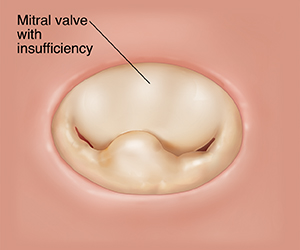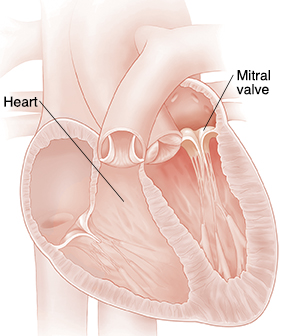Mitral insufficiency means your mitral valve has problems closing. This lets blood leak back through the valve.
The heart has 4 valves. These valves help blood flow through the heart and out to the body by promoting forward flow and preventing back flow. The mitral valve lies between the 2 chambers of the heart on the left side. These 2 chambers are the left atrium and left ventricle. When the valve is open, it allows blood to flow from your lungs and left atrium to your left ventricle. When the left ventricle contracts to pump blood into your body, the mitral valve closes to prevent blood from leaking backward.
With mitral insufficiency, a small amount of leaking blood rarely leads to problems. But if the leaking is severe, it can cause damage to and enlargement of the heart. That's because the leaking of blood means the blood has to be pumped twice.
Possible causes of mitral insufficiency
Causes may include:
-
Heart damage from rheumatic fever or other infections or diseases
-
Aging
-
Mitral valve prolapse
-
Damage after a heart attack
Treating mitral insufficiency
Medicines may be prescribed. These help the heart work better. In severe cases, heart valve surgery may be needed to repair or replace the valve.




